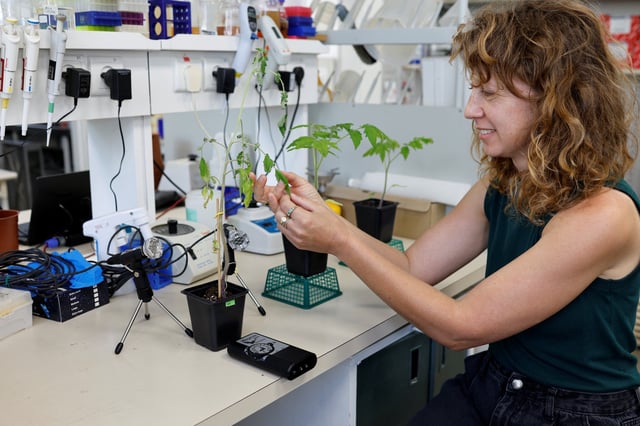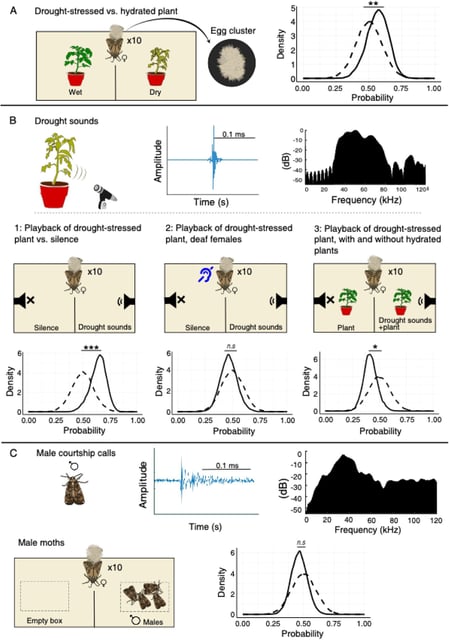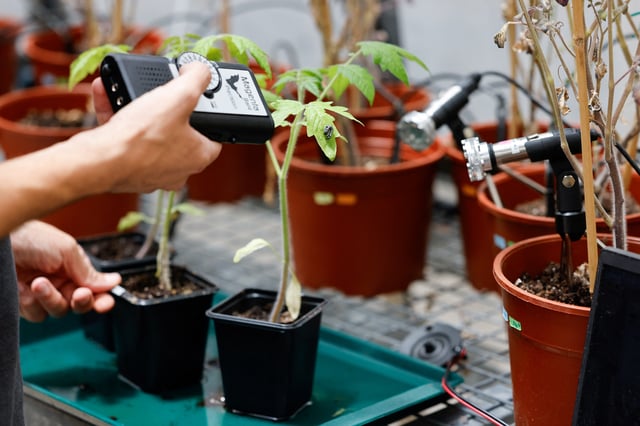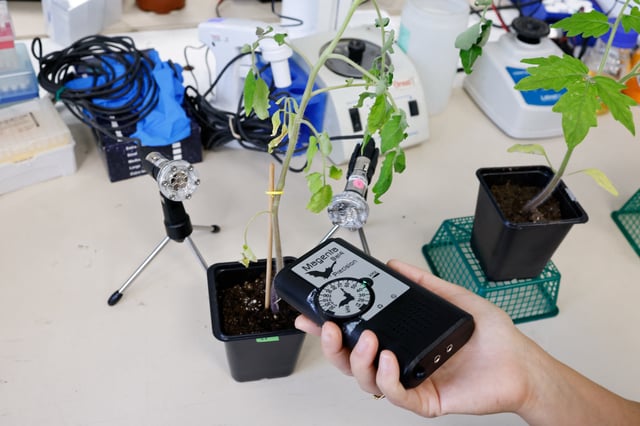Overview
- A peer-reviewed preprint in eLife by Tel Aviv University scientists shows that female Egyptian cotton leafworm moths avoid dehydrated tomato plants by detecting high-frequency distress sounds.
- In controlled playback experiments, moths laid eggs preferentially on silent plants rather than those emitting recorded ultrasonic signals of plant dehydration.
- When researchers neutralized the moths’ hearing organs, the egg-laying preference disappeared, confirming reliance on acoustic perception.
- Further tests showed that female moths did not distinguish between male moth ultrasound and silence, proving responses are specific to plant distress signals.
- The team suggests leveraging this newly revealed plant-insect bioacoustic channel for sound-based pest management and remote crop health monitoring.



